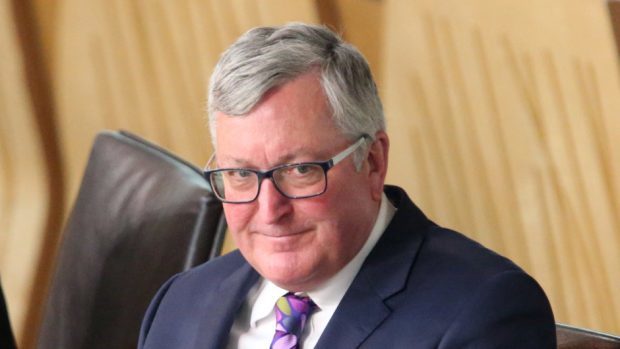Fergus Ewing speaks to The P&J about this week’s fishing talks.
My priority at this week’s Fisheries Council is to make sure the needs and interests of Scotland are fully reflected.
Our share of quota can help this crucial part of our rural economy go from strength to strength.
I will be stressing my concerns around choke species and the impact the landing obligations for 2017 could have on our cod and whiting quotas in the North Sea.
I highlighted these risks in a parliamentary debate last week, and I will make clear today that we should take whatever steps are available to minimise and reduce the risk of choke for our cod and whiting allocations to Scotland.
This also means securing more flexibility, so that when fish stocks are the same in different areas vessels can choose where to fish them and not be restricted to a certain area and potentially tied to the portside because of the discard ban.
We must do everything possible to prevent the termination of the fishing year for individual vessels.
If the UK Government does not take our concerns into account, the results could be financially catastrophic for fishing businesses and coastal communities.
I will be taking any steps to stop this from happening.
Recently concluded talks between the EU and both Norway and Faroe have already delivered some strong results for Scotland.
We’ve seen the coastal states talks for mackerel delivering a 14% increase for 2017, which at current prices equates to a value of around £218million for Scotland.
And an agreement was signed which will ring-fence shares and access arrangements for blue whiting and Atlanto-Scandian herring in 2017.
We received some important additional quotas which will bring an estimated potential value to the industry of £1.8million.
But there were some less-than-satisfactory results, with the European Commission choosing to give away 110,000tonnes of blue whiting to Norway.
It was also decided to increase access to our waters for Norwegian vessels in 2017.
Neither of these decisions will provide much in direct tangible benefit to the Scottish fishing industry.
This is very disappointing, considering Scotland is the second largest contributor to the overall package.
We must work to deliver more indirect benefits to communities from this situation, if we can, through related onshore activities.
Scotland’s fishing industry is a vital part of our rural economy, with our fishing fleet generating £437million last year.
That’s why we will fight for the best possible outcome at December Council.
We need to get the best possible deal to build on the success we’ve already achieved so we can boost the sustainability and profitability of our fishing industry.
